Announcing the 2024-25 Society of Fellows Faculty Cohort
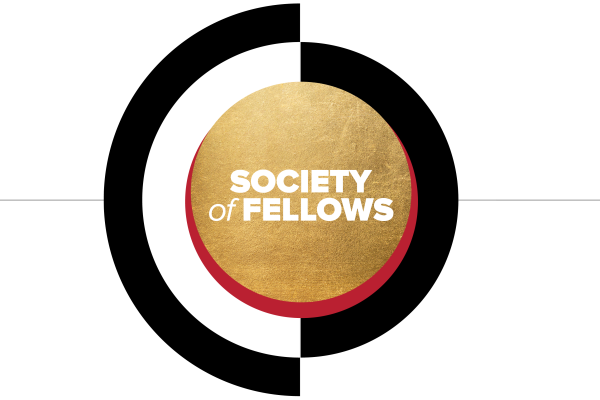
The Global Arts + Humanities Discovery Theme is proud to announce our 2024-25 Society of Fellows faculty awards. The incoming cohort includes faculty from the College of Arts and Sciences with affiliations in the College of Internal Medicine and Departments of Art, Comparative Studies, East Asian Languages and Literature, English, French and Italian, and History of Art.
These fellowships provide faculty with release time (two-course reduction) to focus on a scholarly and/or creative project that advances the seminar theme. The theme for the 2023-24 Society of Fellows seminar is CARE | CULTURE | JUSTICE. This thematic foregrounds care as an interdisciplinary investigation. It approaches care as a cultural practice that alerts us to the ethical and political obligations that arise from explicit claims of harm and everyday requirements for nutrition, shelter, bodily integrity, education, health and social belonging.
About the Society of Fellows
Multidisciplinary inquiry is built on the strength of disciplinary foundations and comparative skills. The Society of Fellows fosters a multidisciplinary community of faculty, undergraduate and graduate students that support the synthesis and translation of knowledge across disciplines to engage critical societal challenges in the form of an annual theme.

Marta Castilho da Silva
External Fellow
Project Title | Politics of Care: Well-Living, Indigenous Futurities, and the Protection of Biodiversity
The increasing presence of a predatory transnational agribusiness in Brazil is accelerating global warming. This project involves collaboration with the Dourados Indigenous Women Association efforts to recover ecosystems and establish “well-living” — a mode of sociability grounded on solidarity, care, respect and harmony with nature. Through this collaboration, Politics of Care will create guidelines for policies aligned with caring and just politics regarding indigeneity and the environment; and advance scientific understanding about how cultural frameworks based on care have fueled grassroots strategies for thriving in politically unfavorable environments.
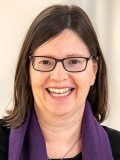
Janet Childerhose
Research Assistant Professor, College of Medicine-Division of Internal Medicine
Project Title | The Overdose Stories
Over 150 people die each day from unintentional consumption of fentanyl and xylazine. Care for people who overdose is often informed by the addiction model of substance use often conjoined with narratives about the current opioid crisis. What these narratives obscure are individual stories of people who have experienced overdose and what just care means to them. The Overdose Stories will amplify the voices and recommendations of people who are experts at staying alive in an unsafe environment and include the creation of an installation of overdose stories and photographic portraits based on interviews with up to 20 Ohio residents who have experienced a non-fatal drug overdose.
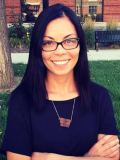
Namiko Kunimoto
Associate Professor, History of Art
Project | Urgent Animations
This project situates Japanese Empire as a world-historical event that continues to exert profound influence over political dynamics and, crucially, the broad set of contemporary art practices that foreground collective care and work toward justice in the extended wake of twentieth-century Japanese militarism. Through analyses of works by contemporary Transpacific artists, Urgent Animations highlights the lingering present-ness of Japanese Imperialism to press for justice in current-day politics at a time of heightening anti-Asian racism in North America and increasing nationalism in Japan.
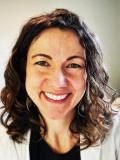
Ashley Hope Pérez
Assistant Professor, Comparative Studies
Project Title | Sustaining Advocacy for Reader's Rights
This project addresses the harms of book bans — including impacts on creative expression, implications for education, and injury to students. Sustained engagement with the fight for readers’ rights frequently comes at a high cost. Resisting book bans is slow and often isolating work. Those invested in censorship and exclusion excel at creating a toxic, hostile environment for authors, educators, students and their allies. Sustaining Advocacy for Readers’ Rights focuses on intentionally weaving an engagement with care into proreader advocacy and social justice work.

Margaret Price
Associate Professor, English
Project Title | Transformative Access: Building Collective Care in Institutional Spaces
This project investigates when and how acts of care including “transformative access” and “collective accountability” occur in academe. Through the building of an accessible, publicly-available digital archive and co-authored article, Transformative Access emphasizes relational processes that center race, ethnicity, disability, class, gender, sexuality, and coalitional work, and that specify access as a form of care. Collective accountability, as used here, is a construct that deliberately counters institutions’ tendency to co-opt the terms care or culture of care.
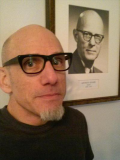
David Ruderman
Associate Professor, English (Newark campus)
Project Title | Poetry in the Fields of Poverty and Addiction
Substance use disorder is not just an individual issue but can be linked to other collective and ongoing political, public health, spiritual and economic crises. This project builds on a poetry-writing project begun as part of the Day Reporting Program in Newark, Ohio, which offers people charged with low-level drug offenses the opportunity to participate in a 90-day program in lieu of jail or prison. Participants receive GED training, group therapy, drug and alcohol counseling, parenting classes and creative arts therapy. Poetry in the Fields of Poverty and Addiction involves the curation of a collection of poems by and oral histories of people living with and struggling to recover from substance use disorder in Newark, Ohio, and research for a larger book project entitled Literatures of Addiction.
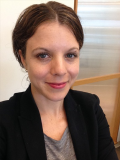
Johanna Sellman
Associate Professor, East Asian Languages and Literature
Project Title | Narratives of Care Across Borders in Contemporary Arabic Literature
This project compares contemporary Arabic literary narratives in migrant and postmigrant settings and how they center the natural environment or other ecologies and systems that counter binary notions of belonging and deservingness (victim/perpetrator, idealization/demonization/ and deserving/non-deserving) seen in many border building practices and discourses. Narratives of Care across Borders highlights texts written by women authors that probe the political and social fabric that precede forced migration or are part of its aftermath. This project suggests that literary explorations of ecologies and systems invite re-orientation toward how care and justice can be cultivated in creative and generative ways.

Lucille Toth
Associate Professor, French and Italian
Project | Decolonizing Dance/Movement Therapy
This project interrogates the concept and practice of Dance/Movement/Therapy through the lens of decoloniality and proposes a path towards a more global understanding and practice of care through movement. Informed by qualitative engagements with immigrant populations, this project links community care to migration and dance and prompts collective inquiry about decolonial practices within the dance studio. Decolonizing Dance/Movement Therapy will yield a book chapter that focuses on the mechanics of decolonizing dance and a companion somatic protocol — a step-by-step guideline to facilitate non-verbal, movement-based workshops.

Amy Youngs
Associate Professor, Art
Project Title | Soil Culture Parade
A celebration of soil, enacted by participants in a procession that includes the myriad of ways that soil ecosystems are made, remade, understood, valued and cared for. This is an inherently entangled and multidisciplinary affair; involving the multitudes of non-human organisms who co-construct the soils that make human lives possible, as well as geological, agricultural and cultural forces that act upon them. Soil Culture Parade makes this complex ecosystem visible through art, costumes, music and performances activated by people who have participated in workshops and events celebrating soil culture and care. The workshops include the building of Soil Wagon, a sculptural, wheeled structure that houses a living soil ecosystem and requires collaboration with worms, minerals, waste and a team of human Soil Carers.
Facilitators
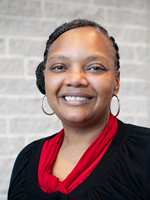
Stephanie Power-Carter
Society of Fellows Leadership Faculty
Professor, Teaching and Learning
Power-Carter is a professor in the Department of Teaching and Learning and the Director of the Center for Video Ethnography and Discourse analysis (CVEDA). Her passion is to engage in research that helps us to see each other’s humanity more fully. She uses discourse analysis a way to see and examine how people use language to negotiate their identities and to better understand how Black youth, and youth from historically resilient communities navigate their educational experiences. Power-Carter's scholarship examines the resilience, possibility and potential of Black youth.

Christa B. Teston
Society of Fellows Leadership Faculty
Andrea Lunsford Designated Professor of English
Teston studies how humans navigate uncertainty in technoscientific, biomedical and media-rich domains. Specifically, she researches the evidential backstage, or all the work that goes on behind the scenes when experts attempt to corral chaos. Her first book — Bodies in Flux: Scientific Methods for Negotiating Medical Uncertainty (University of Chicago Press) — critiques the fetishization of certainty and advocates for an ethic of care that honors human fragility and bodily flux.
Learn more
To learn more about the Society of Fellows program and faculty and student cohorts, visit the Society of Fellows homepage.
